Has Te Reo elitism become Professional Managerial Class brownwash?
When I was 18 I had a car accident that left me with a serious head injury that damaged the part of my brain where I formulate speech and language.
Sometimes, without realising it, I mangle my pronunciation horribly.
I’ve always been a tad self-conscious about it and that’s why I don’t try to pronounce Te Reo because I fear some pronunciation policing woke fascist will jump on my mispronunciation and scream I’m being racist for mispronouncing the language and lead some new crusade to get my cancelled – and I just don’t have the energy for any of that!
I get cancelled monthly as it is, I don’t need another bloody target on my back!
My repertoire of Te Reo is pure pidgin Māori – Kia ora, Kai pai and Kia Kaha, but I do use those many times a day as my basic go to for greeting anyone.
My tongue is simply too leaden for the beauty of a cultural treasure like Te Reo, and while I can’t speak it, I certainly believed it was my daughters birth right to enjoy this gift, so she has been in a bilingual class all her life (currently she is the only pakeha in her class which is a tragedy in of itself) and I have to tell you that when she speaks Te Reo it melts my black cynical heart and makes me feel more connected as a New Zealander than any other single thing.
To me, Te Reo is a cultural treasure that is a gift, and I think the recent friction over Te Reo is because it isn’t being given as gift, and instead has become a virtue signalling cudgel used by the Professional Managerial Class akin to their aggressive pronoun peacocking that is being used as an elitism rather than a cultural gift.
You see this brown washing happen at State Agency level, it’s outrageous that Oranga Tamariki have that name when they damage so many Māori children!
Comedian Kajun Brooking touched on this Te Reo elitism with this joke…
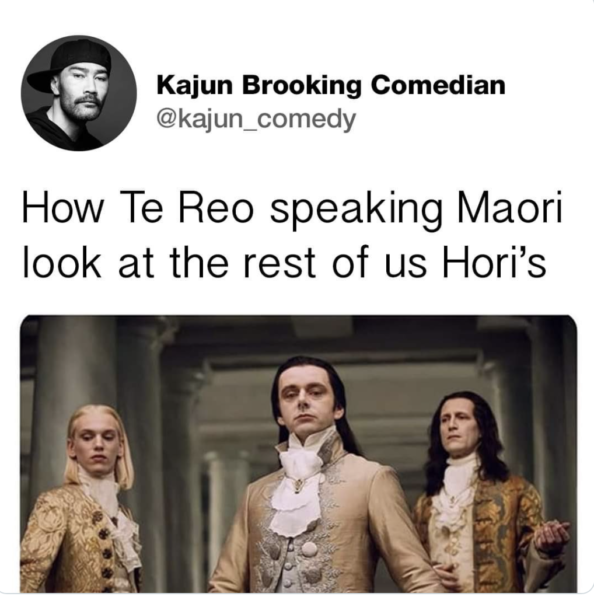
…he was surprised by the popularity of it…
Comedian Kajun Brooking shocked by reaction to his Te Reo meme
A comedian has been shocked by the mixed response to a Te Reo meme he posted on social media.
Comedian Kajun Brooking posted the meme on Twitter at the beginning of July, which said: “How Te Reo speaking Maori look at the rest of us Hori’s”.
Brooking said the idea for the meme came after an interaction with a woman who asked him for help in Māori. When he told the woman he couldn’t speak the language, “she actually looked quite disappointed in me”.
…we shouldn’t allow woke identity politics elitism to shame us or bully us, that’s misusing the gift that is Te Reo.
If you don’t speak Māori and you don’t want to, that’s ok, you aren’t a bad person!
But equally, just because you don’t understand what is being said, your slight inconvenience doesn’t justify the cross burning racism that gets voimited up the nanosecond you don’t understand what is being communicated!
Sometimes inconveniencing the majority is good for that majority.
As you wait for the caption to explain what is being said, you might also think this is how hard of hearing and the deal feel all the time, which is why captioning should be funded for all media!
That moment where you don’t understand can be a learning and teaching moment of empathy.
That’s a good thing.
Honestly, if you are such a cracker honky that hearing te reo spins you out, you need a large cannabis cigarette to chill out.
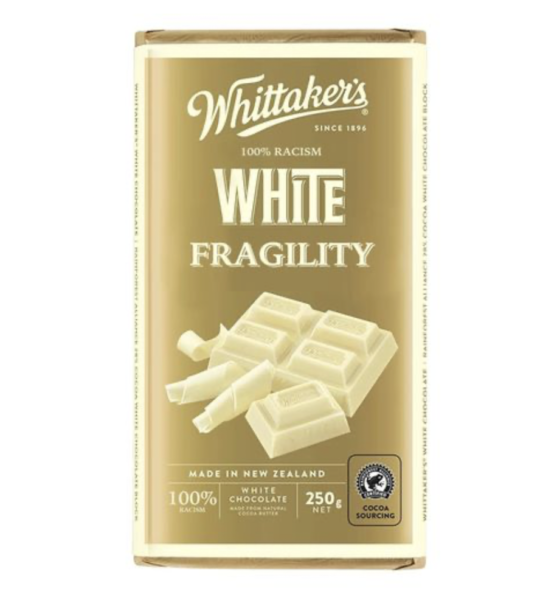
Equally we shouldn’t allow the Professional Managerial Class’s use of Te Reo as a virtue signal to masquerade their failures when 27 000 are on emergency housing wait lists, when 200 000 kids are in poverty and when there are more children living in cars than when Labour began in 2017!
Speaking Māori fluently doesn’t solve any of those problems!
Increasingly having independent opinion in a mainstream media environment which mostly echo one another has become more important than ever, so if you value having an independent voice – please donate here.
If you can’t contribute but want to help, please always feel free to share our blogs on social media.

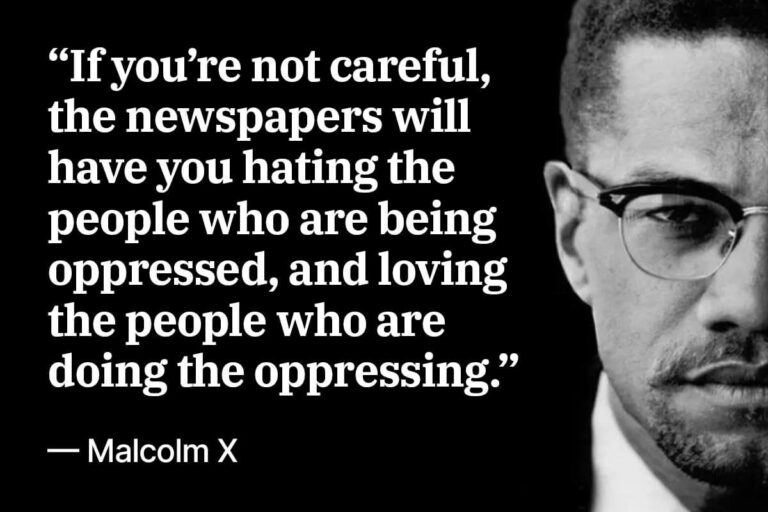

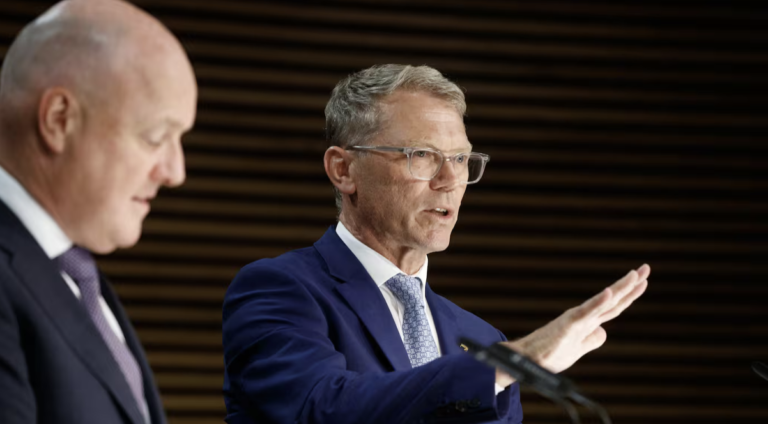
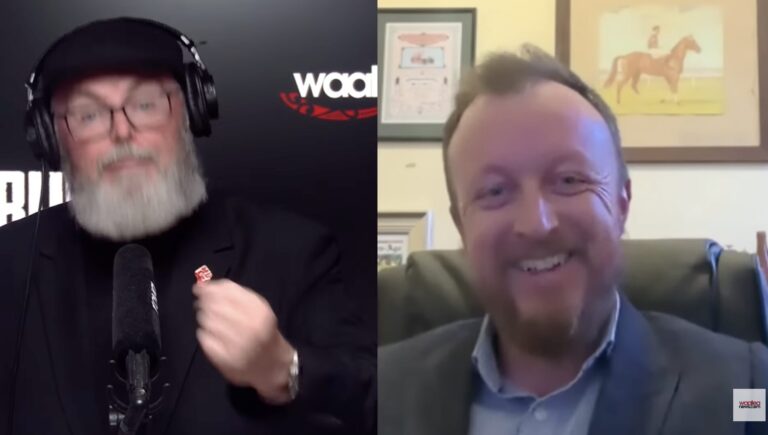
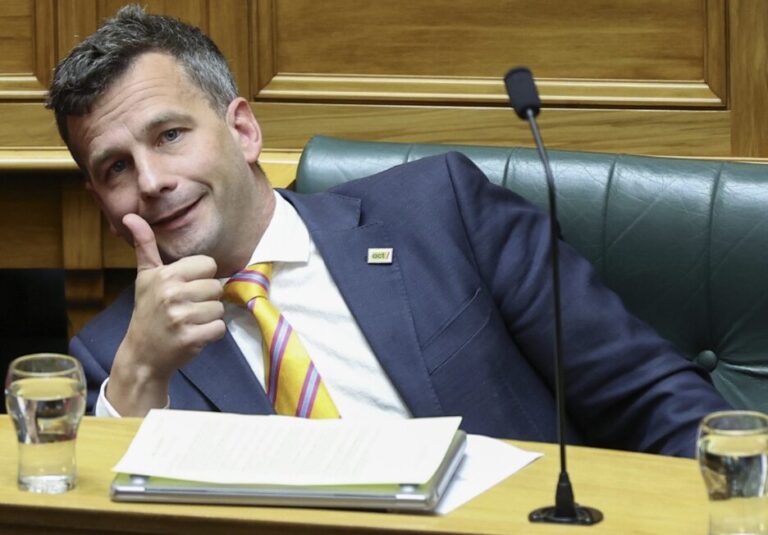

Ka pai. This below to me is vital to understanding the position. Remembering that everyone is devious, but I think pakeha are the winners in any contest on that.
Equally we shouldn’t allow the Professional Managerial Class’s use of Te Reo as a virtue signal to masquerade their failures when 27 000 are on emergency housing wait lists, when 200 000 kids are in poverty and when there are more children living in cars than when Labour began in 2017!
Speaking Māori fluently doesn’t solve any of those problems!
Our economy has been wrecked by adopting freemarketism and neo-liberal economics. It is completely unprincipled for those who have fashioned this slippery system so they will benefit from it, to live on Cloud Nine and ignore the results of the devastation of a plucky little economy that was trying to become fairer and more principled, as well as maintain a practical level of trade and enterprise. The principles were murdered. In a true revolution , the principals would also have been murdered. But we are trying to come to terms with our position and some of us are trying to retain our humanity and regain our principles. Why is it so hard to face up to that fact and act to redress the damage before we lose all of what we were and our way back?
Greywarbler: “Remembering that everyone is devious, but I think pakeha are the winners in any contest on that.”
Best not to hang that one solely on pakeha. Deviousness is part of the human condition: it isn’t dependent upon skin colour or culture.
The professional managerial class contains many Maori nowadays. And of course the MSM employs a lot of Maori.
From what I’ve seen, Maori activists are pushing the revitalisation of the language (for the second time at least in my lifetime, I’d add), and the most influential have no idea how languages work, or which strategies would be the most efficacious. And pakeha are too intimidated – and too scared of being labelled “racist!” – and putting their jobs at risk – to question any of it.
This bit: “….27 000 are on emergency housing wait lists, when 200 000 kids are in poverty and when there are more children living in cars than when Labour began in 2017!”
The Maori activists pushing language revitalisation are largely middle class and educated. But the people referred to above are the poor and disadvantaged, and disproportionately Maori. And these are the people the PMC are apparently ignoring, in their pursuit of language chauvinism.
“Speaking Māori fluently doesn’t solve any of those problems!”
Exactly. One cannot eat, wear or live in, any language.
Those in the public service have jobs because of the government. It’s not the other way about. The government needs to develop the courage to do the right thing by the poor, and ignore all the virtue-signalling on the part of the PMC.
I like seeing and hearing te reo, anywhere. It’s part of our culture that was nearly lost. Our culture, as in NZ/AO, not Pakeha/Maori. I’m white as (Scots mostly) and I only know a bunch of words and little phrases in te reo. My favorite is motoka, it still makes me giggle that one. I grew up in a very white part of South Island and didn’t meet a maori until I was about 10. First Maori teacher was age 15, so we learnt the white pronunciation throughout school. I still can’t roll my tongue correctly, but it’s great to hear others are learning the language. At work we have a couple of Africans who’d talk to each other in Afrikaans. Ya do wonder if they are talking about ya. I have a Cambodian flatmate who speaks Khmer on the phone. It feels weird but I think that’s only because we’re used to only hearing English our whole lives, at least in my case. So it’s not the language spoken that is offensive, it’s just adjusting to change that becomes harder as we age. Captions would be good. YouTube does it easily so can’t everywhere else? I add Morena and Nga mihi to emails sometimes. It’s not hard to make an effort at being inclusive. I don’t see that as virtue signaling, it’s just polite. My Khmer flatmate and I giggle at his pronunciation of English sometimes, he is not at all fluent. Neither of us gets offended because we’re just genuinely trying to communicate and sometimes it’s funny. We have a young white maori at work who rolls her eyes and corrects our te reo pronunciation, but she’s been around the language all her life, so it’s easy for her. She’s young so we don’t get offended by her apparent “elitism”. The more te reo around the better for learning it imo. Just get used to it.
A little anecdote from school days 40 years ago. Mid 70’s. My high school started a Maori ‘options’ class for the senior school. An American exchange student with us at the time asked a few Maori kids if they were going to take it and they answered no. We thought that was a bit strange..
It was only about 30 years later that it occurred to me that they might have spoken Maori! If they did they certainly wouldn’t have been wanting to go to a ‘Let’s learn Maori’ class would they?
Separately, last year I asked a workmate if he could speak Maori? “Oh yeah”. Hmm, does your father speak it also? “Oh yeah”. In a work place you won’t normally hear foreign/second languages anyway but it was a reminder that there is more going on than one knows.
Cheers
James
“Equally we shouldn’t allow the Professional Managerial Class’s use of Te Reo as a virtue signal ”
That will be the real problem. All those people’s kids will just add Te Reo to their list of subjects with A+ marks at school and if needed they will continue with it on to University…
Meanwhile the kids who don’t ‘achieve’ at school will have another blow to their self confidence. Which is not a reason to not encourage the teaching of Te Reo, but I just hope the education profession do have a better idea on how to help those kids, since they have failed pretty badly in the Maths, English and Science field..
Just an observation:-
In my last trip to Fiji, I noticed how Fiji natives were fluent in Fijian language, Indians in North Indian language, and both spoke English as second language. Both Fijian and Indian languages are taught at minority of schools, but both groups were confident in their languages as they spoke in their own language at home (outside of school).
Fijians did not impose Fijian language on Indian people, and nor did Indian impose Indian language on Fijians. All spoke what they wanted. It was still amazing how many Fijians spoke indian and vice-versa.
Good point Benny. Same as in Vanuatu where I observed a lot of the local populace spoke a bit of English and French along with there local language.
Te Reo has become like everything else led by the current government. Tainted. I have always had a fondness for listening to the traditional greetings etc which often came across with great Mana. Also found of the 2000s trends towards Maori song.
Now that pride, that a pakeha person can feel for an adopted culture has fallen away. And no more so to me than through the symbol of oppressive overreach Te Reo has become. From all the precious rubbish over who can use it when and how to the virtue signalling nonsense of the MPC to Stuff’s absolutely abhorrent pidgin and I am so over it.
Te Reo must be kept alive by Maori within their own homes but open to all comers. With less than 3% of Maori speaking it daily and with a lot of government money poured into it over 20 years, it will probably not survive. Regular Maori speakers have declined over that time. Worldwide this is an overwhelming trend, particularly where English is a main language. The world wants instant, easy communication and despite it being a symbol of colonisation, English is the language of the business world. This will not change.
The West Coast; butchering Maori place names is honouring our Irish heritage
Haha right on Martyn, Te reo is a gift and if you can speak and understand it all power to you, Like a lot of people I do like to drop a odd greeting and te reo word or three in everyday conversation, but every now and then I get the odd funny or hairy eyeball look not just from fellow wogs or to be more presise gwogs ( grumpy white old guys ) but also from people who are competent in the use of reo in every day use, never the less I do try because I think it’s a nice language and always have done
Kia pai te ra
( probably f****d that up to!)
It’s interesting when even the hard left notice it’s getting over the top.
The trouble comes not from the language itself, which I would agree is a cultural treasure, but from the current social engineering and weaponising te reo, accept or be called a racist, at the same time as unmandated, undebated co governance is being enacted.
Te reo yes- but not in pidgin mixed sentences-sneaky social engineering and unwanted co governance, absolutely no.
Kcco: “Te reo yes- but not in pidgin mixed sentences-sneaky social engineering and unwanted co governance, absolutely no.”
Nailed it. I’ve always been a supporter of revival and revitalisation of the Maori language. But the strategies used must actually produce results. It’s obvious that what’s been done to date hasn’t been effective.
And the side order of ethno-nationalism is a complete turn-off.
Agree 100% Not everyone can be good at languages and for different reasons.
You can be racist and speak perfect Te reo, in fact. isn’t that what the colonials used to get the treaty over the line?
Te reo for me should be for Maori and not sullied by other’s who learn it and then get elevated job opportunities better than Maori aka our Human Rights appointment – aka getting someone non Maori but who speaks Te reo is more important than actually having someone who is Maori and wants to champion human rights which would have been the better choice than a small town ex Mayor and for our biculturalism.
Biculturalism is dead now in NZ, we have multiculturalism and a team of woke nationalists re-intepreting the treaty to cancel one party out, while trying to turn NZ into a slavers colony for rich internationalists needing free welfare.
Personally cringe when I see woke Te reo being used to get hands out for government contracts or sell commodities like chocolate and drinks. The virtue signallers win, but can’t do the contract very well, with mountains of managers everywhere with diversity planning at slave wages or firing people at will! I won’t bother mentioning how Te reo is being used to help obesity.
Doesn’t help NZ public transport, construction, teachers, medical staff and all the other failing services to our people to waste it on marketing budgets and new signs and branding everywhere.
Celebrate Te reo, but not brownwash it by woke, with an agenda which generally works against Maori.
SaveNZ: “You can be racist and speak perfect Te reo”
Individual people can’t be racist: that’s the preserve of governments. Society cannot police what people think and say, and nor should it attempt to do so. Individuals can be prejudiced and bigoted: that’s part of what it is to be human. But individual prejudice can’t bring about the large-scale structural changes which discriminate against (or in favour of) particular groups in society. That’s the role of governments.
“…in fact. isn’t that what the colonials used to get the treaty over the line?”
No. That’s not what happened at all. Those who drafted the Treaty had good intentions. They wished to protect the indigenes.
“Biculturalism is dead now in NZ….”
From the very beginning of western settlement, there were settlers from all over the world. Because of this, biculturalism has never existed in NZ. There have always been too many different cultures here. Which one would we choose?
While it’s good that Maori and non-Maori are learning it as a second language, that won’t save it in the long run. Like all languages everywhere, for survival it needs a critical mass of native speakers. No amount of second language learning will help.
In my view, it’s a waste of time and resources teaching it in schools. Especially if it’s made compulsory.
In the 1970s, when I was a young adult, I learned the language to passable fluency. I was taught by a native speaker: there were considerable numbers still around back then.
Unfortunately, since then, the language has fallen off a cliff, despite the kohanga reo movement. That’s because, though well-intentioned, it was the wrong strategy for promoting language survival.
As a result, we now have people who are at best bilingual, while the numbers of native speakers have plummeted. The stats suggest there are probably none left. If that’s so, Maori is a dead language, just like Latin and classical Greek. Not extinct, because it’s still being used. But dead, because there are no native speakers.
“Celebrate Te reo, but not brownwash it by woke, with an agenda which generally works against Maori.”
By the looks of it, the current approach is also being driven by Maori activists. It appears that neither they nor the liberal left non-Maori understand the factors which underlie language survival and revival.
I’m annoyed by the ways in which Maori words and text are being interpolated into English, and by the obsession with giving every organisation and department a Maori name. I find it eye-rollingly cringe worthy. But that’s not because I don’t like the language: it’s because it won’t achieve the purpose of language survival and revival. It cannot, because it’s the wrong approach.
And it’s worth restating that it wasn’t evil colonials who suppressed the language. Maori elders in the 19th century petitioned the government, asking that Maori children be taught only in English in the classroom. They wanted their children to be proficient in English: but they expected that those children would still be native speakers of Maori, that Maori would still be the language used in the home.
And for many years, it was. Were that not the case, it wouldn’t have been possible for my teacher to have been a native speaker. But the language fell out of use.
Those who are keen for language revival need to look at the lessons to be learned from Ireland. If any country were ideally-positioned to save and revive Its language, it’s Ireland.
But despite a century of effort, Irish is losing ground against English. When we were there about 20 years ago, Irish was still used in the home, and spoken, in the Gaeltacht areas – the Ring of Kerry, eg – but in the years since, its use has diminished. It’s becoming the second language of urban liberals in Dublin and other cities.
It may also eventually become like Latin: not extinct, if it’s still being used as a second language, but dead.